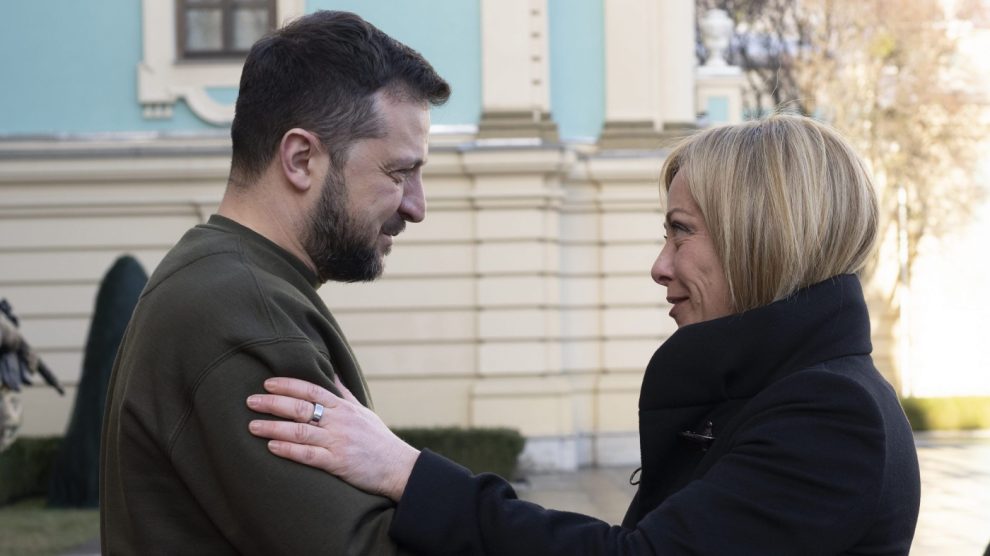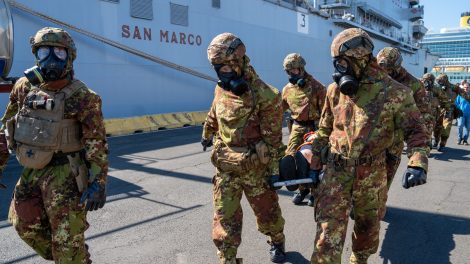Rome and Kyiv closing in on defence deal. After the United Kingdom, France and Germany signed long-term security agreements with Ukraine, Italy is about to do the same. It’s only a matter of ironing out the last details, according to diplomatic sources, who nevertheless tight-lipped on the possible announcement date as the two-year anniversary of Russia’s full-scale invasion nears.
- Italian Prime Minister Giorgia Meloni has called a G-7 leaders’ meeting on that day.
Retracing the steps. Discussions between Italian and Ukrainian officials on this bilateral agreement began on November 28. As Decode39 reported at the time, the starting point was the G-7 leaders’ declaration signed in Vilnius on the sidelines of the NATO summit in July. The document outlined security guarantees for Ukraine to prevent the recurrence of a Russian invasion before the attacked country joins NATO.
- UK PM Rishi Sunak led the way in January, signing the first bilateral defence agreement. Then, on Friday, Ukrainian President Volodymyr Zelensky visited Berlin and Paris to sign two more parallel deals with German Chancellor Olaf Scholz and French President Emmanuel Macron.
Timing is crucial. Rome’s security commitment will provide additional stability at a challenging time for the Ukrainian resistance, amid a sharp slowdown in Western aid – most notably the United States’ $60 billion aid package, which is being held hostage by House Republicans under campaign pressure by Donald Trump – and a minor defeat on the battlefield with the fall of Avdiivka, a highly symbolic town in the Donetsk region, on Saturday.
- A few hours after that happened, President Zelensky struck a defiant tone while speaking at the Munich Security Conference. “We can take back our land. And [Vladimir] Putin can lose. This has already happened more than once on the battlefield.”
What will the Rome-Kyiv deal look like? It will likely be closer to the one Ukraine struck with France. It entails a framework for long-term humanitarian and financial aid, reconstruction support, and military assistance, but no specific financial commitments on arms supplies due to the need for parliamentary approval. On top of that, Paris has pledged to provide up to €3 billion in “additional” military aid this year.
- On the other hand, the 10-year agreement between Ukraine and Germany stipulates that in the event of a future Russian attack, each side can request consultations and decide the next steps within 24 hours. Responses include “swift and lasting assistance in the areas of security, modern military equipment in all areas […] and economic assistance.”
- Additionally, Berlin and Kyiv agreed to continue working to ensure that the costs of Moscow’s aggression continues to rise, including through sanctions and export controls.
Ongoing support. In the meantime, Italy is expanding its multi-pronged approach to assist the invaded nation. On Saturday Foreign Minister Antonio Tajani reiterated Italy’s and the G-7’s support for Ukraine and announced that the eighth Italian aid package would arrive in Ukraine in a matter of days. He also signed an agreement with his Ukrainian counterpart Dmytro Kuleba and the European Bank for Reconstruction and Development for a €200 million loan in favour of Ukrhydroenergo, Ukraine’s main hydroelectric company.




